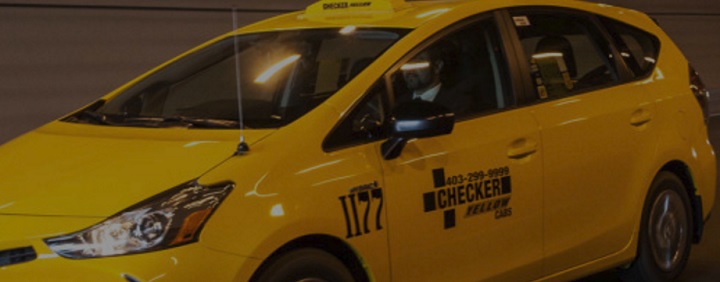New Brunswick’s chief medical officer of health, Dr. Jennifer Russell, announced 11 new cases of the novel coronavirus on Wednesday, bringing the total number of cases to 81.

Russell also confirmed at a press briefing that a cab driver in Fredericton who came in contact with a traveller got infected with the virus, and said public health has been working with the company to begin contact tracing.
READ MORE: 11 new coronavirus cases confirmed in New Brunswick, state of emergency extended
Rumours of a cab driver in Fredericton with COVID-19 have been circulating on social media.
The co-owner of the company where the driver works, Checker Cab, said he was shocked to find a Facebook post and a Reddit thread naming his company, even though that detail was not shared by Public Health.
“Think about who they’re hurting by doing it,” said George Youssef, “especially now with the taxi. It’s an essential service. It has to be there. Don’t scare people.”
Youssef said the driver picked someone up from the airport on March 18 and began to show symptoms afterward.
He found out he was positive on March 28 after he was contacted by the public health department.
READ MORE: New Brunswick Shoppers Drug Mart employee tests positive for COVID-19
“We got a piece of paper from the health department, saying that this is what your guidelines are, so I read the guidelines. And for three weeks prior to this, we’ve been doing everything on that guideline and more than what we needed to do to make sure that our drivers are safe,” Youssef said.
He said they are equipped with gloves, masks, spray bottles and the debit/credit machine gets wiped clean before any of the customers touch it.
Passengers are no longer allowed to sit in the front seat.
“Everything they touch, the front door and the inside door that they come in and out of is cleaned after every passenger,” Youssef said.

He added that no driver has been allowed to be in close contact with another driver at the office, with each having their own time slot to go in and get their equipment.

Get weekly health news
But Youssef said the issue right now is that some of the people think that because the driver is positive, then the entire company is positive, and that “because of the scare-mongering people are now scared to take a cab.”
“It’s very disturbing to find out that a person would put something on social media and actually name the company instead of ‘a driver.’ Why does it have to be a Checker taxi driver? Why would they say that? Are you trying to scare people?” said Youssef.
He said that the driver got it because somebody wasn’t following the guidelines.
“The health department has been saying not to take public transport if you have any symptoms. How is that they’re going to blame our company for something like that? when we’ve been doing our darn best.”
According to Youssef, there are 100 people working at his company.
“I have 100 families that are relying on me for their livelihood,” he said. “Don’t put these people in a position where you’re hurting them and hurting the public from taking that service.”
Youssef also noted that Checker Cab runs on a computer, which records everything that happens in the company’s vehicles.
“We’re as safe as any other company or any other industry that is in the city, so I’m actually telling you right now that I have all the information that I know exactly who came into contact with you in my car, and we’ve contacted every one of them,” said Youssef.
“So we are doing our part to keep everyone safe, the customers and especially my drivers and our entire staff.”
Questions about COVID-19? Here are some things you need to know:
Health officials caution against all international travel. Returning travellers are legally obligated to self-isolate for 14 days, beginning March 26, in case they develop symptoms and to prevent spreading the virus to others. Some provinces and territories have also implemented additional recommendations or enforcement measures to ensure those returning to the area self-isolate.
Symptoms can include fever, cough and difficulty breathing — very similar to a cold or flu. Some people can develop a more severe illness. People most at risk of this include older adults and people with severe chronic medical conditions like heart, lung or kidney disease. If you develop symptoms, contact public health authorities.
To prevent the virus from spreading, experts recommend frequent handwashing and coughing into your sleeve. They also recommend minimizing contact with others, staying home as much as possible and maintaining a distance of two metres from other people if you go out.
For full COVID-19 coverage from Global News, click here.









Comments